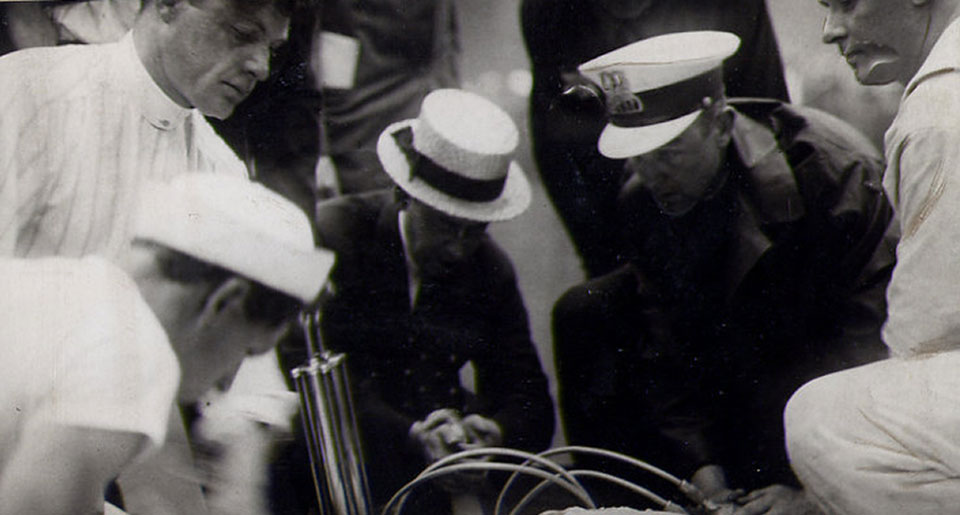
The Chicago Department of Health was busy within minutes of receiving word of the Eastland Disaster. Their knowledge, expertise, and quick action was found in many facets surrounding the Disaster.
Shortly after 7:30 a.m., two physicians and lifeguards were dispatched after receiving the first call for medical aid at the scene. Thirteen people were resuscitated. The Commissioner of Health, four physicians, and three nurses went to the Iroquois Memorial Hospital to take charge of the rescue work. A total of 250 patients were treated, each offered hot coffee and a dry blanket before being discharged.
At 11:00 a.m., the Department of Health issued a statement to the city press, warning anyone that comes in contact with river water to seek anti-typhoid treatment. Many who survived the tragedy became sick after swallowing the filthy river water, and the Chicago Department of Health was crucial in administering hundreds of inoculations for typhoid fever. “She ingested some river water and contaminates and was very ill for nearly a year,” Ben Jacobs recalled of his wife Hulda’s experience in the river.
Throughout the day of the Disaster, health inspectors traveled to all morgues and hospitals within three miles of the downtown area to obtain lists of all identified bodies. They quickly made an index of survivors and identified bodies available for the public and press, updating it every half-hour.
Later that night, three physicians and 75 nurses laid out the bodies of the dead in the temporary morgue at the Reid-Murdoch building. They also cleansed and fumigated rooms at the Reid-Murdoch building once the bodies were removed and taken to the temporary morgue setup at the Second Regiment Armory. The Health Department offices remained open and staffed round the clock. In the days that followed in the aftermath of the Disaster, the Chicago Department of Health continued working tirelessly to aid in numerous areas of response.